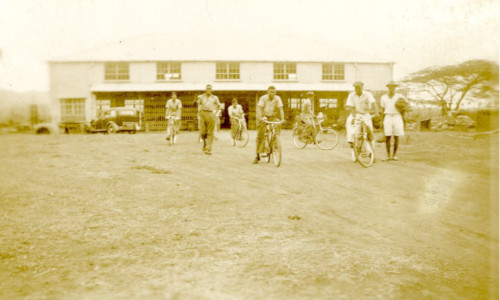
The National Provident Fund was introduced as an initial step in imporving social services. At the request of the Government of St. Kitts-Nevis-Anguilla, the Ministry of Overseas Development sent an expert to prepare a feasibility report. This was J.M Jordan of the Department of Health and Social Security.
The Act creating the Fund was passed by the House of Assembly on the 28th May 1968. It was to cover all persons between ages 16 and 60 under a contract of service and included casual labour and domestic servants. Registration of employers and employees took place in the few days between the passage of the Act and the operative date.
A contribution of 5c for every dollar earned was to be made by the employee and this was to be matched by the employer For the first two years the contribution of sugar industry employers was to come out of $125,000 dedicated for the purpose out of the Sugar Rehabilitation Fund. During the first year there were 50 recorded claims. 27 were for reaching 60 years of age, 22 for deaths, and 1 for permanent incapacitation amounting to $2711.00
It was the policy that the money collected should stay in the State so that it would be available for local development. All monies were deposited in Bank of America which guaranteed a 7% interest. Unfortunately this bank ran into problems in 1980 resulting in serious loss to persons who could ill afford them. A sum of $25,000 was placed in Barclay’s bank to be used in case of emergency. During the first year contributions amounted to $640,669. According to the Act, the Sugar Workers Pension Fund, held by the Crown Agents in London and amounting to over two million dollars were to be transferred to the NPF.
The first Director of the Fund was St. Clair Phillip, he was succeded by Robert Manning. Minister Fitzroy Bryant was the Chair of its Board of Control. By 1971, the expansion of the Fund was under consideration. In 1978, the National Provident Fund was replaced with the Social Security scheme.




